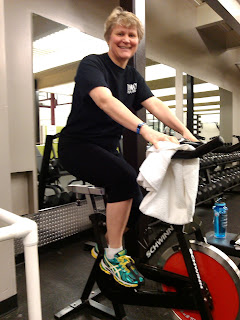"There is no single right approach and no simple answer to dealing with the human side of cancer."
--JC Holland, The Human Side of Cancer
You will find out that you are not the only woman with breast cancer and that breast cancer patients come from all paths of lifestyles. Beware that incomplete information can result in erroneous ideas, and decisions may be made without backing of scientific evidence.
Upon hearing of a breast cancer diagnosis or treatment, people have to deal with their fears and uncertainties. That includes both sides, women who get the diagnosis, and people who come in contact with these women. We can switch between numerous coping mechanisms during a cancer journey.
Here are some coping mechanisms/attitudes of women with a cancer diagnosis:
Avoider/Procrastinator: Me? It can't be that bad. I don't need to see a doctor/get treatment/...
Fighters: I am going to beat this thing. I am going to start exercise/meditation/acupuncture/.... I choose to do the most aggressive treatment, chemo, mastectomy, even if it is not needed scientifically.
Stoics/Non-fighters: Accept and endure what comes, but I don't go out of my way to seek new treatments.
Paranoid: May choose aggressive treatments so that the cancer won't come back. I can (will) die from this even though the diagnosis was 15 years ago.
Here are some coping mechanisms by people who hear about your cancer journey:
Cheerleaders: You'll be fine. They caught it early. You don't look like you have cancer.
Therapists: This is because you have too much stress in your life (bad job, difficult relationships, ...). Think positively, so that you can beat the odds.
Fighters: Who needs boobs, cut them off. Get over it and move on.
Problem Solvers: You can cure your cancer, if you take whatchamacallit, or become a vegan, or ...
Unsure what to say, but want to say something: The relative of a friend has cancer and has such and such an experience.
Clichés: Everything happens for a reason. Think positively.
Bad things happen:
"Everyone who is born holds dual citizenship, in the kingdom of the well and in the kingdom of the sick.[...] Sooner or later each of us is obliged, at least for a spell, to identify ourselves as citizens of that other place."
--Susan Sontag, Illness as Metaphor
Cancer patient: Separate fact from fiction and seek medical help, and otherwise stay with the attitude that comes natural.
Supporter of the cancer patient: Listen! Say you are here for them. Give some concrete suggestions how you can help.
P.S. Take this moment to familiarize yourself about choices such as mastectomy or reconstruction and what decisions you might be inclined to make. It might happen to you in the future.

